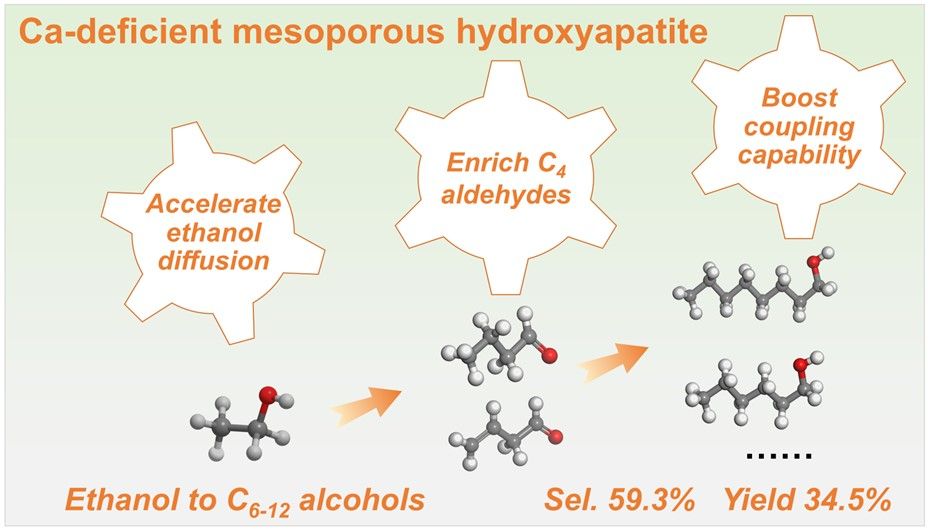Boosting C6-12 higher alcohols yield from ethanol upgrading over Ca-deficient mesoporous hydroxyapatite through intermediates enrichment of C4 aldehyde

Abstract
Ethanol upgrading to C6-12 alcohols offers a green pathway to high-valued chemicals. Achieving high yields of C6-12 alcohols remains challenging due to the complexity of the ethanol reaction network. Here, we report an efficient conversion of ethanol to C6-12 alcohols using Ca-deficient mesoporous hydroxyapatite as the catalyst, which was prepared from the reaction of NH3 and PO43-. The yield of C6-12 alcohols reached 34.5% with a selectivity of 59.3% at 325 °C and 0.1 MPa, exhibiting high ethanol upgrading performance. Ethanol-adsorption kinetics and ethanol-TPD-DRIFT results revealed that the ethanol diffusional time constant of the enlarged pore of the hydroxyapatite increased by 2.01 folds of the original hydroxyapatite, thereby facilitating the access of ethanol molecules to active sites, which was beneficial for ethanol dehydrogenation. The online-generated acetaldehyde was subsequently undergoing aldol condensation to accelerate the formation of C4 aldehydes which as the intermediates were stabilized over Ca deficiency sites on the hydroxyapatite surface. The enriched C4 aldehyde intermediates are further coupled with C2, C4, or C6 aldehydes at the basic sites to produce longer-chain aldehydes (C ≥ 6), which are subsequently hydrogenated to form C6-12 alcohols. Noticeably, compared to the original hydroxyapatite, the Ca-deficient hydroxyapatite showed enhanced density of basic sites, about two times higher. Hence, this catalyst remarkably boosted the yield of C6-12 alcohols from ethanol upgrading. This work provides a strategy for the selective conversion of ethanol to C6-12 alcohols.

